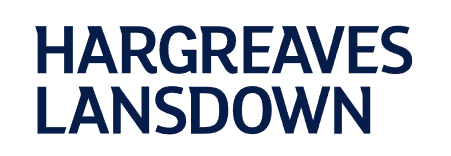How much money do you need to begin day trading? This is a common question, asked by beginners who are keen to understand if they have enough cash to run a trading account.

How much money do you need to begin day trading?
Some new investors conclude that day trading will be the most effective way to invest £1,000 because it will work that cash as hard as possible.
In reality, investing £1,000 through day trading would be a waste of your time.
This is mostly because of expected returns. Realistically, you are unlikely to generate a return in excess of 25% per year.
Generating a positive return while day trading is difficult. But let’s assume that optimistically you are able to generate a 25% return in the first year. This is an excellent, market-beating rate of return that many day traders would be proud of.
It takes as much time and effort to day trade with £100,000 as £1,000. You’d perform the same research, spend the same amount of time, and place the same trades (albeit 100x larger).
On a £100,000 balance, this equates to £25,000 – a salary of sorts. But with a £1,000 account, you’d be looking at £250 – barely enough to cover your groceries for a single month.
This also ignores the fact that trading costs would be very high relative to £1,000 of capital, meaning that investment costs would likely eat up all of your gains.
To produce a reasonable return in absolute terms with £1,000 you’d need a return of 1000%+. This should demonstrate how uphill your fight would be to produce a good income from investing a small sum.
Which are the best UK trading platforms?
We’ve shortlisted the best of the best UK stockbrokers below to help your search:
Trade shares with zero commission. Open an account with just $100. High performance and useful friendly trading app. Other fees apply. For more information, visit etoro.com/trading/fees.
Large UK trading platform with a flat account fee and a free trade every month. Cheapest for investors with big pots.
The UK’s no. 1 investment platform for private investors. Boasting over £135bn in assets under administration and over 1.5m active clients. Best for funds.
Youinvest stocks & shares ISA offers lower prices the more you trade! Which? 'Recommended Provider' for last 3 years.
Choose a pre-made portfolio in minutes with Nutmeg. Choose your level of risk and let Nutmeg efficiently handle the rest.
Buy and sell funds at nil cost with Fidelity International, plus simple £10 trading fees for stocks & shares and ETFs.
Capital is at risk
Trade stocks & options on the advanced yet low-cost Freedom24 platform that arms retail investors with the tools to trade like professionals.
Capital is at risk
Please also see our Hargreaves Lansdown review, our AJ Bell review and interactive investor review.
Margin accounts can increase the buying power of your capital
One way to increase the impact of your starting capital is by trading on margin. This is where your broker allows you to trade with money you don’t have – in doing so, they become a lender.
Brokers commonly offer a margin of up to 5:1, meaning that they allow you to buy shares worth £50,000 with an account balance of only £10,000.
These short term loans are secured against the assets in your account; your cash balance, any incoming settlements and your active holdings. To recover their money, brokers have the right to liquidate your positions and use the proceeds to recoup their loan.
But before it comes to this, stockbrokers will usually issue a ‘margin call’, which is a warning that you need to deposit further funds into the account to avoid a liquidation event.
Like any loan, you will incur an interest charge on the value borrowed. This will erode your returns, therefore only profitable traders will benefit. Break-even or loss-making periods will be worsened by the use of margin.
Trading on margin is a form of leverage, much like when investing via spread betting. Therefore this increases the risk of trading, as the value of swings will be multiplied compared to your stake.
Read more: Investors guide to spread betting
Legal requirements over how much money do you need to begin day trading
In the US, the regulator has imposed a rule that day traders using many of the common broker accounts types need a minimum of a $25,000 deposit.
This sets a clear boundary between those who have enough money to become a day trader, and those who don’t.
However, this shouldn’t be interpreted as an endorsement of $25,000 an ideal account size. This is just an arbitrary line drawn, to protect small investors from being sucked into high risk margin trading.
This applies to stock market trading and forex trading. You can learn more of the details in our shortlist of the best forex trading books.
Read more: How to trade forex
In summary: successful day traders were rich in advance
The bottom line is that to day trade and earn a high income, you will need a substantial amount of starting capital, such as £50,000 – £100,000. This is only a rough guide and is not a recommendation.
The larger your starting capital – the lower excess return you need to generate to compensate yourself for the time spent.
And the larger your account balance, the lower the trading costs will be in proportion to your portfolio size.
This is a virtuous circle which provides richer day traders with an advantage over poorer day traders. Unfortunate, but true!
If you’re interested in reading more about day trading, take a look at our pick of the best day trading books.






